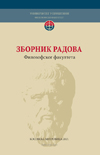Students about Politics and National Identification in Sports
Abstract
This paper discusses the results of the research on politics and national identification in the sports, which was conducted among the students of the Faculty of Sports and Physical Education at the University of Kosovska Mitrovica, Niš and Banja Luka. This study included a total of 464 students, and it was conducted in April and May 2013 in Leposavić, Niš and Banja Luka. The main goal of this research is to determine to which extent the students recognize the influence of politics in the sports at the level of everyday practice, and how they view the process of consolidation and expression of national identity in sports. This paper also points to the relevant theoretical and methodological approaches to understanding politics, sports and national identity, as well as their mutual relations.
The results of the survey show that students recognize not only the impact of politics in sports but also the expression of national identification in sports competitions, as well as in the events relating to them, in which an exceptional role is played by the media of mass communication. In their responses to the questions, the students indicated that the politics has a major impact on the sports, and that sports have a significant impact on politics, noting that the success of the top sportsmen, especially in international competitions, encourage the awakening of national feelings, strengthen national identification and contribute to the strengthening of patriotism. This effect is particularly reinforced by the behavior and statements of top athletes in the media, after major sporting results, as well as the statements of the highest state officials on these occasions. That is why these achievements are of great significance for the promotion of the state and the nation, but they are, on the other hand, also very useful for personal promotion of politicians and political parties in power. The students also observed the importance of the role of the symbolic features in sports, and, in this context, claim that the emblems, coats of arms, and other national symbols on the sports gear contribute to the strengthening of national identity.
Regarding the attitude that the athletes in international competitions should sing the national anthem, most students, especially from Leposavić, believe that it is their obligation to do so. It is particularly significant that almost all the students emphasize that the hooligan behavior of fans at sports events insults their national feelings.
References
Anderson, B. (1991). Imagined Communities. London: Verso.
Antonić, S. (2003). Nacija u strujama prošlosti: Ogledi o održivosti demokratije u Srbiji. Beograd: Čigoja.
Базић, Ј. (2011). Национални идентитет у процесу политичке социјализације. Српска политичка мисао. 34 (4), стр. 335-354.
Базић, Ј., Пешић, М. (2012). Социологија. Лепосавић: Учитељски факултет.
Girginov, V. (2004). Totalitarian sport: Towards an Understanding of its Logic, Practice and Legacy. Politics, Religion & Ideology. 5 (1), str. 25-58.
Guttmann, A. (1986). Sports Spectators. New York: Columbia University Press.
Dahl, R. (1989). Democracy and its Critics. New Haven: Yale University Press.
Dunning, E. Malcolm, D. (2003). Issues in the Sociology of Sport, London: Routledge.
Đorđević, I. (2009). Umeju li antropolozi da igraju fudbal? Sport i identitet u savremenoj Srbiji. Antropologija. (9), str. 89-103.
Đorić, M. (2012). Huliganizam: nasilje i sport. Vranje: Udruženje Nauka i društvo Srbije.
Koković, D. (2010) Društvo, nasilje i sport. Novi Sad: Mediteran Publishing.
Kustec, L. S., Maksmuti, A. (2010). Odnos politike i sporta u perspektivi teorijskih analiza u politikologiji. Anali Hrvatskog politološkog društva. 7 (1), str. 147-170.
Selhanović, D. (2007). Sport - najsnažniji promidžbeni adut. Medianali. 1 (1), str. 95-102.
Simonović, Lj. (2001). Filozofski aspekti modernog olimpizma. Beograd: Lorka.
Станковић, В., Базић, Ј. (2013). Студенти, спорт, политика. Теме. 37 (2), стр. 843-856.
Thomas, C. (2003). A better democratic model. Trafford: Victoria B.C.
Habermas, J. (1982). Problemi legitimacije u kasnom kapitalizmu. Zagreb: Naprijed.
Heywood, A. (1999). Political Theory. An Introduction. New York: Palgrave, Houndmills.
The details about the publication policy, including copyright and licensing, are available at:

